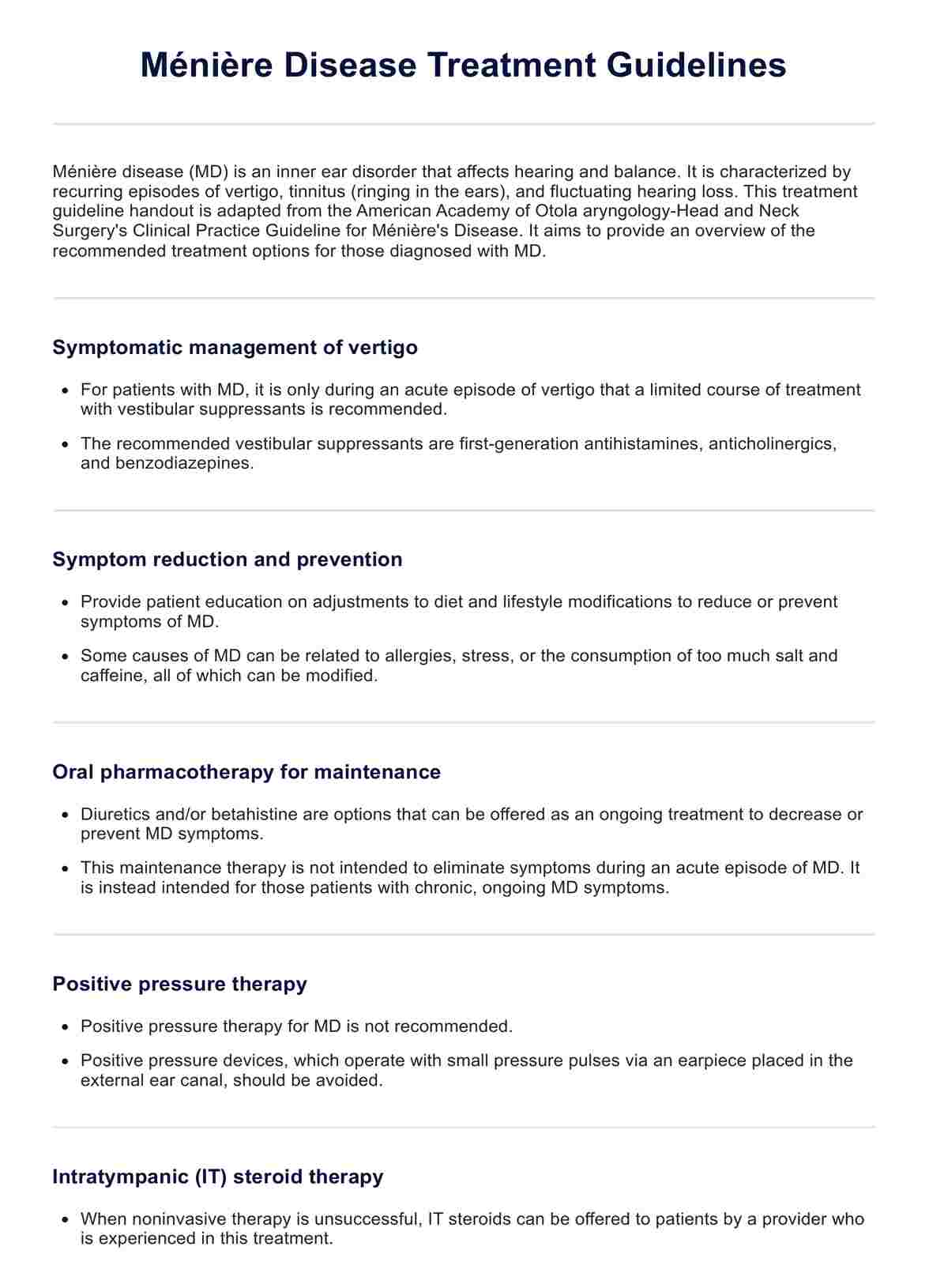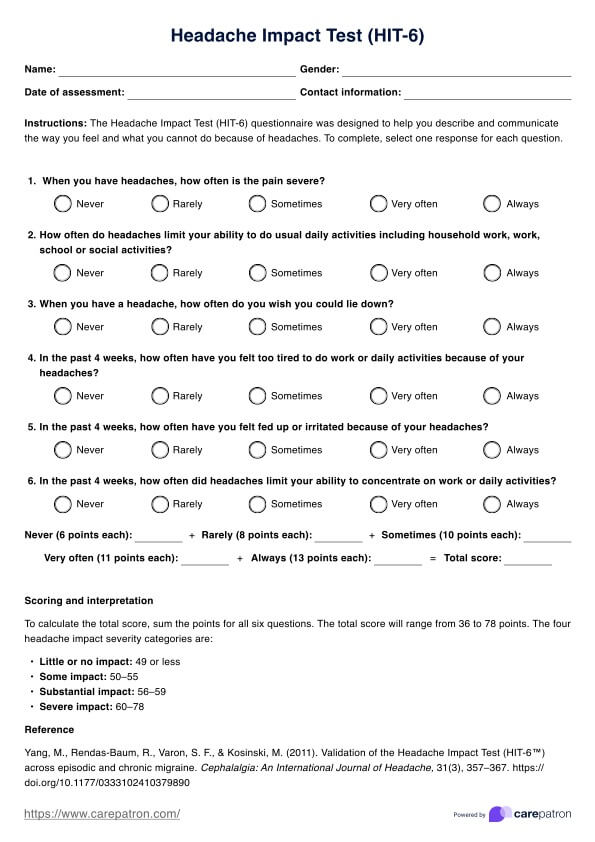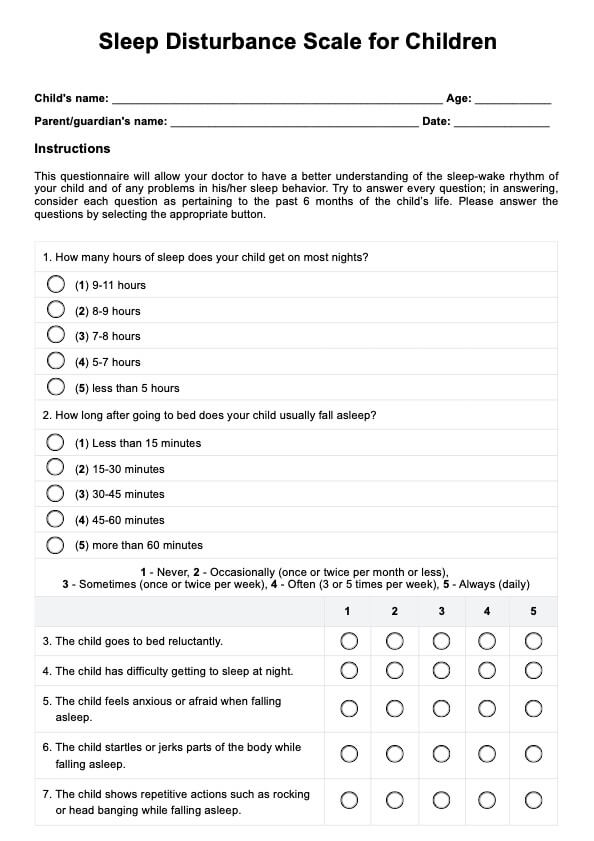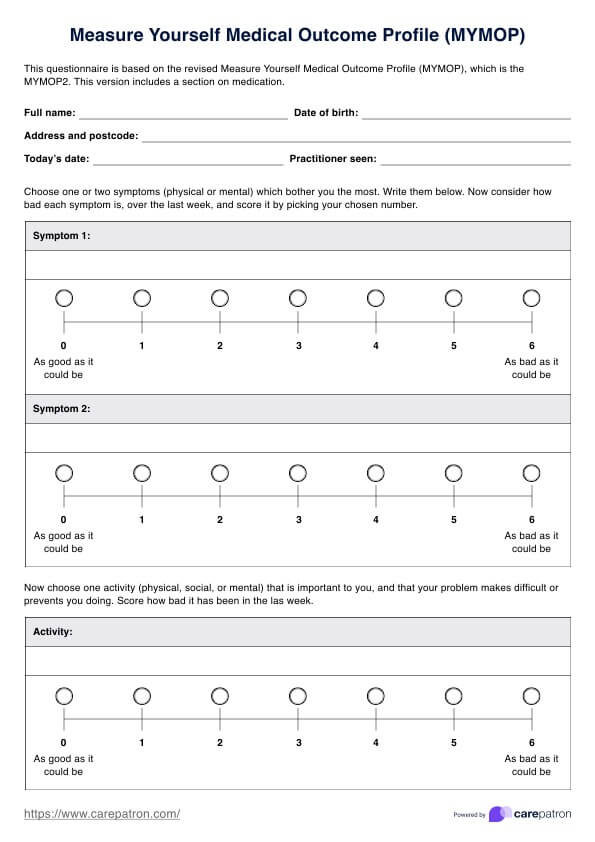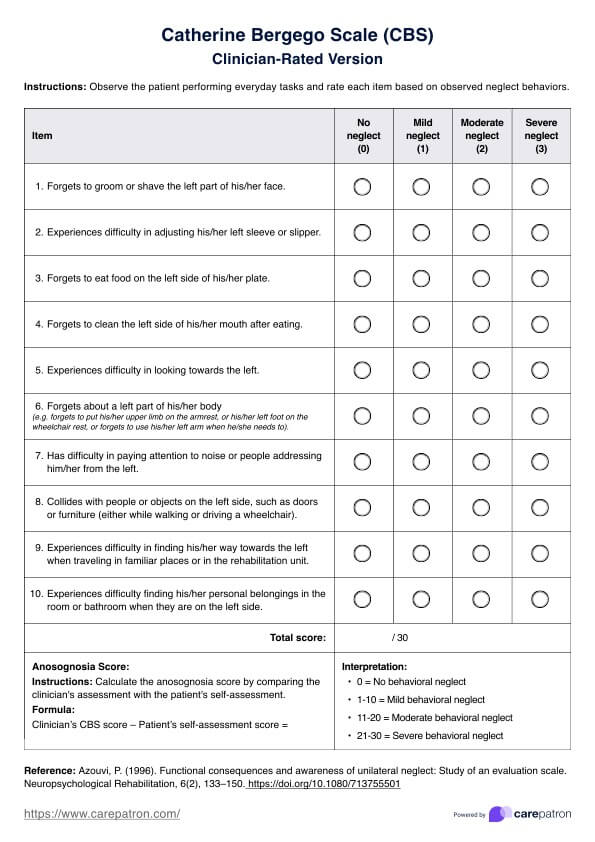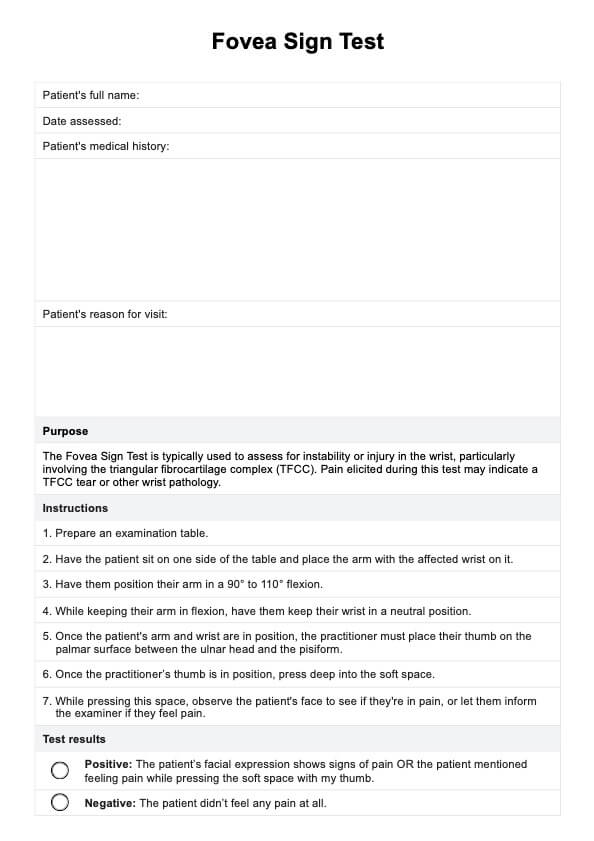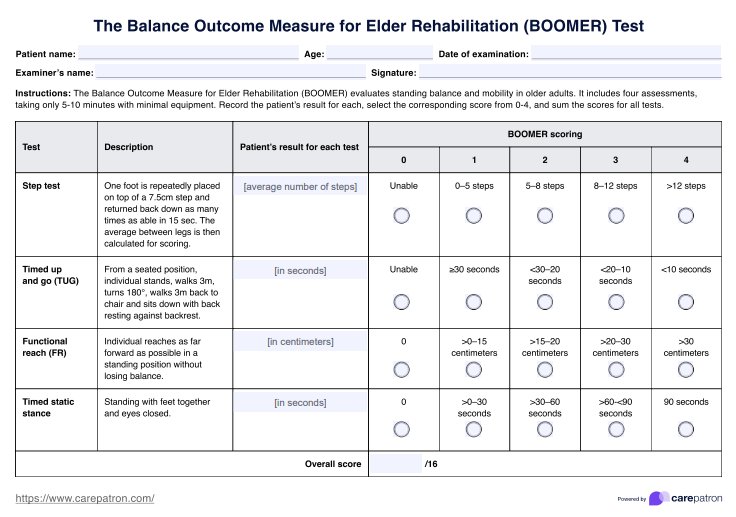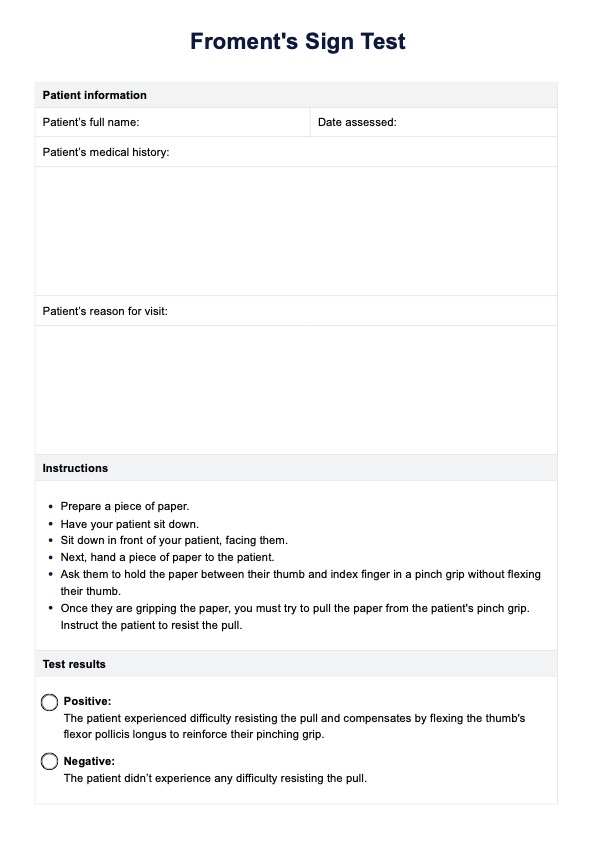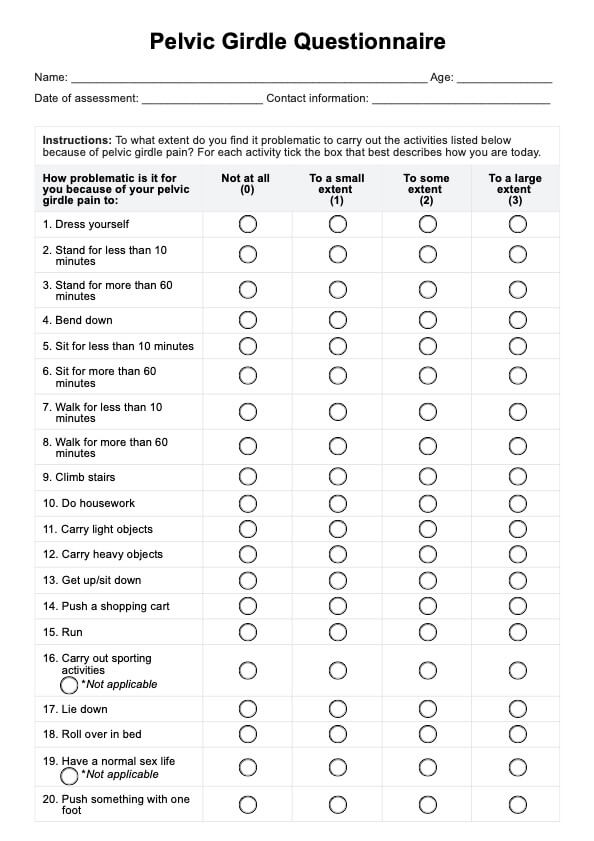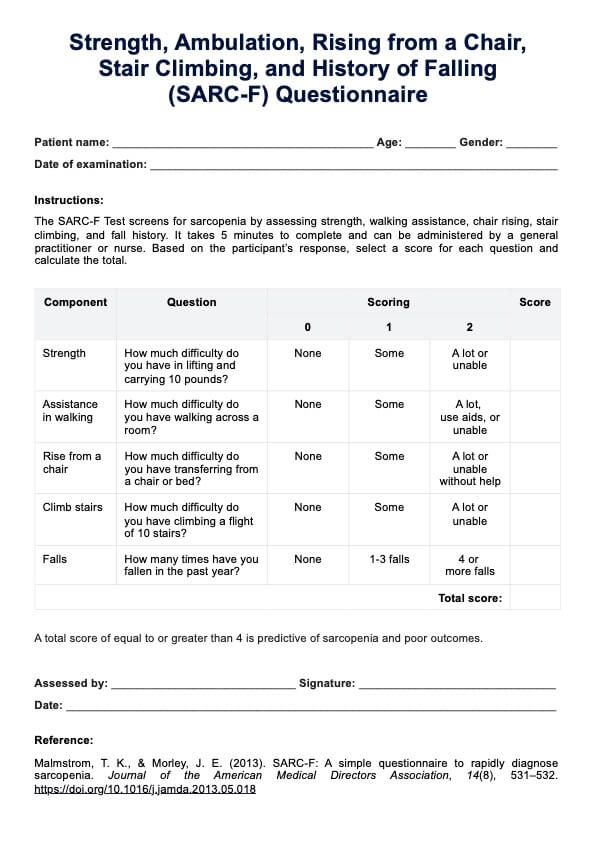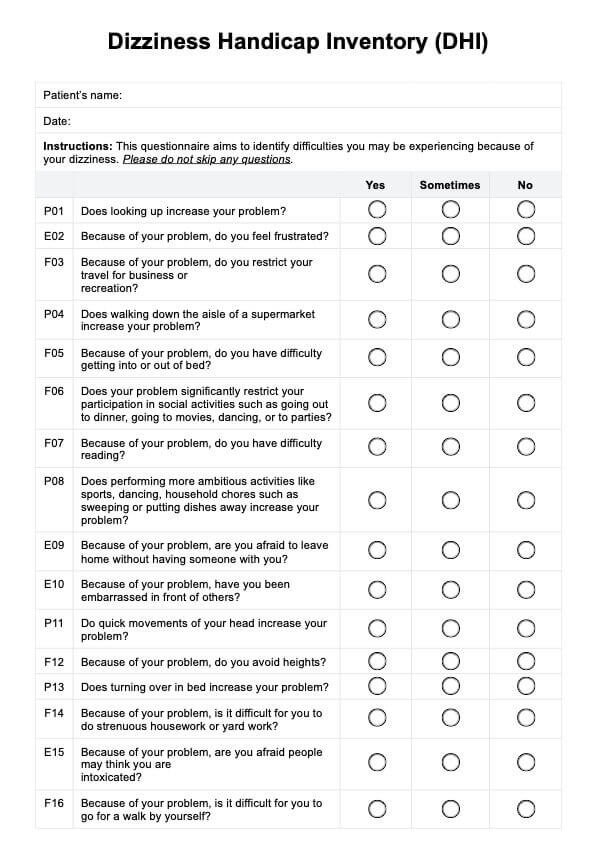Meniere's Disease Treatment Guidelines
Learn about effective treatment guidelines for Meniere's Disease, including example regimens and tips for managing symptoms, all available in Carepatron's free PDF download.


What is Meniere's disease?
Meniere's disease is a chronic disorder affecting the inner ear, responsible for hearing and balance. This condition is characterized by a recurrent vertigo attack, fluctuating hearing loss, tinnitus (ringing in the ears), and a feeling of fullness or pressure in the affected ear. The exact cause of Meniere's disease is not fully understood, but it is believed to be related to abnormal inner ear fluid levels. This fluid, known as endolymph, can build up in the inner ear and interfere with normal auditory and vestibular nerve function, leading to the symptoms of the disease.
Individuals with Meniere's disease may experience periods of intense vertigo attacks, which can be debilitating and last for several hours. Over time, the condition can lead to permanent hearing loss, making early diagnosis and management crucial. Diagnosis often involves a hearing test conducted by a hearing specialist, who will assess the extent of hearing loss and evaluate inner ear function.
In severe cases, surgical options such as a vestibular nerve section may be considered to alleviate vertigo symptoms. Managing Meniere's disease effectively requires a comprehensive approach, often involving communication disorders and otolaryngology specialists.
Symptoms of Meniere's disease
Meniere's disease manifests through various symptoms that can significantly impact a person's daily life. These symptoms often occur in episodes and can vary in intensity. Here are the primary symptoms of Meniere's disease:
- Vertigo: Sudden, severe spinning sensations that can last from minutes to hours, often accompanied by nausea and vomiting.
- Hearing loss: Fluctuating hearing loss, particularly affecting low frequencies, which may become permanent over time.
- Tinnitus: Ringing, buzzing, or roaring sounds in the affected ear.
- Aural fullness: A feeling of pressure or fullness in the affected ear.
- Balance problems: Difficulty maintaining balance, especially during vertigo attacks.
- Nystagmus: Rapid, involuntary eye movements that may occur during vertigo episodes.
- Drop attacks: Sudden falls without loss of consciousness, also known as Tumarkin's otolithic crisis.
These symptoms can vary in frequency and severity, making Meniere's disease a challenging condition to manage. Early recognition and treatment are essential to mitigate the impact on the individual's quality of life.
Causes of this disease
The exact cause of Meniere's disease remains unknown, but it is believed to result from a combination of factors that affect the inner ear. One primary factor is the abnormal accumulation of inner ear fluid, known as endolymph, which can disrupt the ear's balance and hearing functions.
Potential contributing factors include genetic predisposition, autoimmune reactions, allergies, viral infections, and improper fluid drainage from the middle ear.
These elements may interact to affect inner ear fluid and pressure, leading to the characteristic symptoms of Meniere's disease. Further research is ongoing to understand the underlying mechanisms of this condition better.
How is Meniere's disease detected?
Meniere's disease is detected through patient history, clinical evaluation, and diagnostic tests. A hearing specialist will conduct a comprehensive hearing test to assess hearing loss patterns typical of Meniere's. Balance tests, such as electronystagmography (ENG) or videonystagmography (VNG), evaluate inner ear nose function and vestibular nerves integrity. Imaging studies like MRI may be used to rule out other conditions.
Additionally, medical history and symptom descriptions, including a vertigo attack, tinnitus, and aural fullness, help diagnose the disease. Accurate detection often requires collaboration among audiologists, otolaryngologists, and other healthcare professionals.
Meniere's Disease Treatment Guidelines Template
Meniere's Disease Treatment Guidelines Example
Benefits of using this treatment guidelines template
Using the Meniere's Disease Treatment Guidelines template provided by Carepatron offers several benefits for healthcare providers and patients. Here are five key advantages:
Comprehensive treatment approach
This template provides a comprehensive framework for managing Meniere's disease. It addresses the primary symptoms, such as vertigo and hearing loss, and associated factors, like mental health and lifestyle modifications. By following the guidelines outlined in the template, healthcare providers can ensure that all aspects of the patient's condition are appropriately addressed.
Personalized care plans
Each patient with Meniere's disease may present with unique symptoms and medical histories. This template allows healthcare providers to customize treatment plans to meet each patient's needs. Providers can optimize outcomes and improve patient satisfaction by tailoring interventions to specific symptoms and patient preferences.
Enhanced communication and collaboration
The Meniere's Disease Treatment Guidelines template facilitates communication and collaboration among healthcare providers involved in the patient's care, such as ear, nose, and throat specialists, audiologists, and mental health professionals. By sharing a standardized treatment plan, providers can ensure continuity of care and minimize the risk of treatment inconsistencies.
Improved patient education
Patients with Meniere's disease often have a limited understanding of their condition and treatment options. This template includes educational resources that providers can share with patients to enhance their understanding of Meniere's disease and empower them to participate actively in their care. Educated patients are more likely to adhere to treatment recommendations and experience better outcomes.
Commonly asked questions
Meniere's attacks can be triggered by various factors such as stress, fatigue, changes in air pressure, and consumption of certain foods high in salt or caffeine. Additionally, emotional distress and exposure to loud noises may also provoke episodes of vertigo and other symptoms.
Meniere's disease is a chronic condition with no known cure. However, treatment options are available to help manage symptoms and improve quality of life. With proper management and lifestyle modifications, many individuals with Meniere's can experience significant relief from their symptoms.
Meniere's disease does not typically affect life expectancy. However, its debilitating symptoms can significantly impact a person's quality of life. Proper management and treatment can help individuals with Meniere's lead fulfilling lives despite the challenges posed by the condition.


